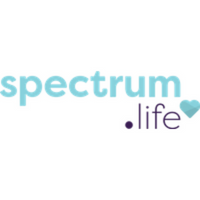Generation Z is coming – be ready
People born between 1997 and 2012 are often referred to in demographic terms as Generation Z and are the most recent cohort to enter the labour market. By 2025, they are predicted to make up 27% of the workforce.
These newbies have different expectations of employers than many of their predecessors. With the talent crisis shortage continuing, it is in businesses’ best interests to listen to these diverse employee needs or risk losing vital talent.
Gen Z is set to shake up the employee experience entirely, focusing less on salaries and profit and prioritising wellbeing and a work life balance.
Gen Z share lots of similar attitudes and behaviours to Gen Y (born 1982-1994). Typical traits and characteristics of Gen Z are:
1. They are tech savvy
Modern employees expect to work with modern technology and are used to being exposed to multiple forms of technology in their personal lives. Employers may face competitive pressure to join the digital race and provide up-to-date digital resources and training platforms.
2. They are entrepreneurial
Gen Z are often called Digital Natives and can easily tap into these knowledge/skillsets to create opportunities. They are more likely to focus on competitive compensation and benefits from an employer. Digital Natives know how to access information and make their voices heard. As a result the power is shifting from employers to employees within labour markets, as employer reputation is everything.
3. They are intolerant of authoritarian leadership
Gen Z expect their inputs to be heard and respected, with 43% stating these as top two priorities in management behaviour. Opportunities to contribute and knowledge share as opposed to just taking orders will keep Gen Y/Z employees motivated, as they are known for being great collaborators.
4. They embrace change
This generation has seen much social and political change and has had no option but to adapt to new environments quickly. Gen Z can embrace change quickly and similarly is unafraid to campaign for change when necessary. Employers must give regular opportunities for employee feedback to facilitate these changes within business environments and cultures.
Cost of living woes
Get Z often enter the job market as students that are exploited in their first few graduate positions in terms of salary. This is emphasised by 65% of Gen Z employees being currently worried about the cost of living, with almost half living paycheck to paycheck. Furthermore, 43% have had to take on a secondary job to make ends meet.
Working double shifts under the rising financial pressure will result in burnout and a rise in absenteeism. Employers need to shift working practices to facilitate Gen Z’s needs or risk damaging employee wellbeing and dealing with higher turnover/absences and long-term sickness.
Many Gen Z workers (75%) prefer to work in a hybrid setting, allowing a degree of flexibility for better resource and finance management – eg staying at home to save on commuting or going into the office to save on heating bills. Gen Z will prioritise flexible working models over salary benefits, illustrating how important work/life balance and working environments are for this cohort.
Expecting sustainability
Gen Z employees expect sustainable business practices and a quarter are worried about climate change. Businesses must step up to demonstrate their sustainability practices and commitments as 56% would leave within two years if didn’t show enough commitment to sustainability. Two out of five Gen Z employees have rejected a job that didn’t align with their values, illustrating the need to communicate business culture and values well to attract and retain Gen Z talent.
‘Generation active’
Gen Y/Z people make up 80% of health club members and are often coined ‘generation active’ making up 89% of online/app-based workouts users. Gen Z gives high priority to health and wellbeing and digital gyms/home workouts – key considerations for benefits packages.
Gen Z employees on average have higher levels of health literacy and are more likely to adopt healthy behaviours and preventative healthcare (ie exercise).
In summary, employers must act fast about Gen Z needs.
Gen Z employees need to feel recognised and valued by their employer and won’t be tied to an organisation that doesn’t align with their personal values. These employees will strive for change and be unafraid to communicate their needs or suggest further actions.
Leadership style is key for retaining this cohort. Higher investment in management training could aid talent retention and further protect business culture and environments. Flexible working practices are key to supporting diverse Gen Z needs, with clear and strong demonstrations for sustainability throughout an organisation. Gen Z employees prioritise their health and will be more likely to take more responsibility for themselves and expect employers to provide a suite of wellness resources to facilitate.
Supplied by REBA Associate Member, Spectrum Life
Supporting 4m+ lives in the corporate, education and insurance sectors with our health & wellbeing solutions.”








